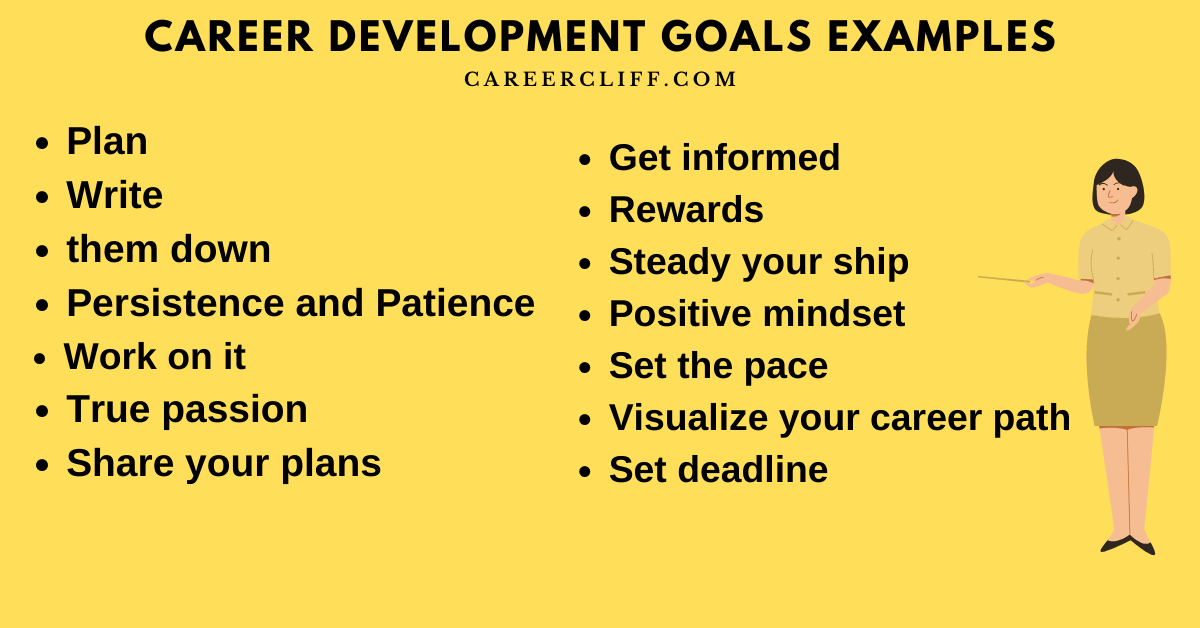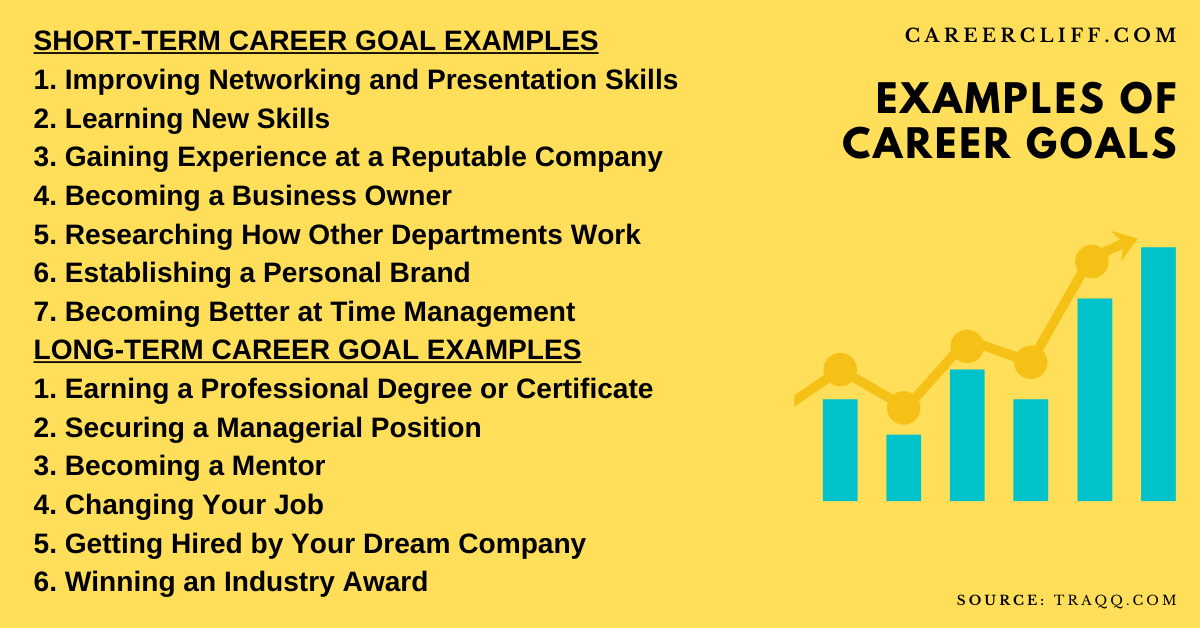Career Development Goals take center stage, inviting you into a world of possibilities where setting clear objectives is key to success. Get ready to dive into the realm of personal growth and professional achievement with a hip twist!
In this guide, we will explore the importance of setting achievable goals, identifying your skills and strengths, creating a development plan, and seizing growth opportunities to propel your career forward.
Setting Career Development Goals
Setting clear and achievable career development goals is crucial for individuals looking to progress in their professional lives. These goals provide direction, motivation, and a sense of purpose, helping individuals stay focused and committed to their career growth.
Examples of Career Development Goals
- Short-term goal: Obtain a certification in a specific skill or technology within the next six months.
- Long-term goal: Attain a leadership position within the organization in the next five years.
- Short-term goal: Network with industry professionals and attend at least two networking events per month.
- Long-term goal: Start a consulting business in the field of expertise after gaining ten years of experience.
Benefits of Setting Specific Goals
Setting specific career development goals helps individuals in planning their career path effectively. It allows them to break down larger objectives into smaller, actionable steps, making the journey towards success more manageable. By having clear goals, individuals can track their progress, make necessary adjustments, and stay motivated throughout their career growth journey.
Identifying Skills and Strengths: Career Development Goals
Identifying personal skills and strengths is a crucial step in career development. This self-assessment process allows individuals to understand what they excel at and where they can improve. By recognizing transferable skills, one can leverage them to advance in their career and achieve their goals effectively.
Methods for Self-Assessment
- Reflect on past experiences: Think about previous roles, projects, or activities where you excelled. What skills did you utilize to succeed?
- Seek feedback: Ask colleagues, mentors, or friends for their input on your strengths. Sometimes, others can identify skills that you may not recognize in yourself.
- Personality assessments: Take personality tests like Myers-Briggs or StrengthsFinder to uncover your unique strengths and preferences.
Recognizing Transferable Skills
- Communication: Strong communication skills are valuable in any job. Whether it’s written, verbal, or nonverbal communication, being able to convey ideas effectively is a transferable skill.
- Problem-solving: The ability to analyze situations, identify solutions, and make decisions is a transferable skill that can be applied across various roles.
- Leadership: Even if you’re not in a managerial position, demonstrating leadership qualities such as initiative, teamwork, and decision-making can set you apart.
Alignment with Career Development Goals
- Utilizing strengths: Understanding your strengths allows you to focus on areas where you excel, increasing job satisfaction and productivity.
- Career path alignment: Identifying skills that align with your career goals helps you choose the right opportunities and make informed decisions for advancement.
- Professional growth: By leveraging your strengths and transferable skills, you can continue to develop professionally and progress in your chosen field.
Creating a Development Plan

Creating a personalized career development plan is crucial for achieving your professional goals. This plan Artikels the steps you need to take to advance in your career and reach new heights. It helps you stay focused, motivated, and organized in your journey towards success.
Significance of Continuous Learning and Skill Development
Continuous learning and skill development are at the core of any effective career development plan. In today’s rapidly changing job market, it is essential to constantly upgrade your skills and knowledge to stay competitive. By investing in continuous learning, you can enhance your expertise, adapt to new technologies, and position yourself as a valuable asset in the workforce.
- Take online courses, attend workshops, and participate in training programs to acquire new skills.
- Stay updated on industry trends and developments to remain relevant in your field.
- Seek feedback from mentors and colleagues to identify areas for improvement and growth.
- Set aside time for self-reflection and self-assessment to evaluate your progress and adjust your development plan accordingly.
Remember, the more you invest in yourself, the greater the returns will be in your career.
Tips on Setting Milestones and Tracking Progress
Setting milestones is essential for measuring your progress and staying on track with your development plan. It allows you to break down your long-term goals into smaller, achievable targets that keep you motivated and focused.
- Define clear and specific milestones that align with your overall career objectives.
- Establish a timeline for each milestone to create a sense of urgency and accountability.
- Celebrate small victories along the way to stay motivated and encouraged.
- Regularly review and assess your progress against the set milestones to identify any areas that may need adjustment.
Seeking Growth Opportunities

In order to seek growth opportunities within your current job or organization, it is important to be proactive and strategic in your approach. Here are some ways to do so:
Networking and Building Professional Relationships
Building a strong professional network is essential for career growth. Here are some strategies to help you network effectively:
- Attend industry events and conferences to meet new people and expand your network.
- Join professional organizations related to your field to connect with like-minded individuals.
- Utilize social media platforms like LinkedIn to connect with professionals in your industry.
- Volunteer for projects or committees within your organization to showcase your skills and expand your network internally.
Role of Mentorship and Further Education, Career Development Goals
Mentorship and further education play a crucial role in achieving career growth goals. Here’s how you can leverage them:
- Seek out a mentor within your organization or industry who can provide guidance, support, and valuable insights to help you advance in your career.
- Consider pursuing additional certifications, courses, or degrees to enhance your skills and knowledge, making you a more valuable asset to your organization.
- Attend workshops, seminars, or training programs to stay current with industry trends and developments, positioning yourself for growth opportunities.
- Take advantage of any mentorship programs offered by your organization to gain guidance from experienced professionals and leaders.